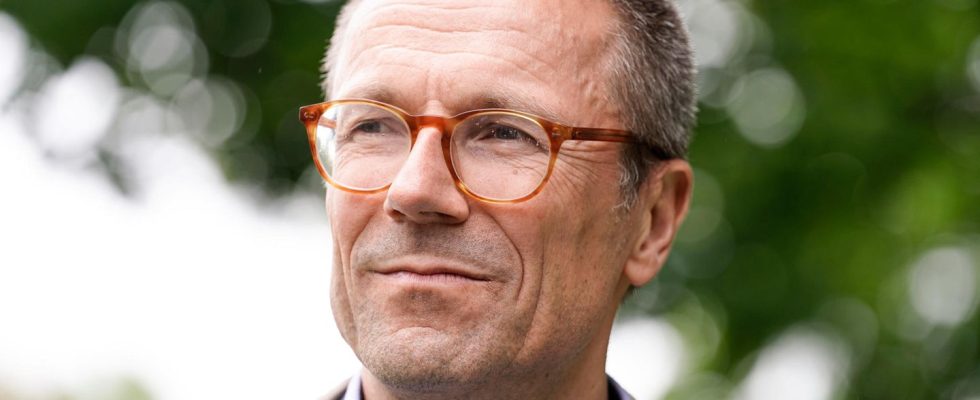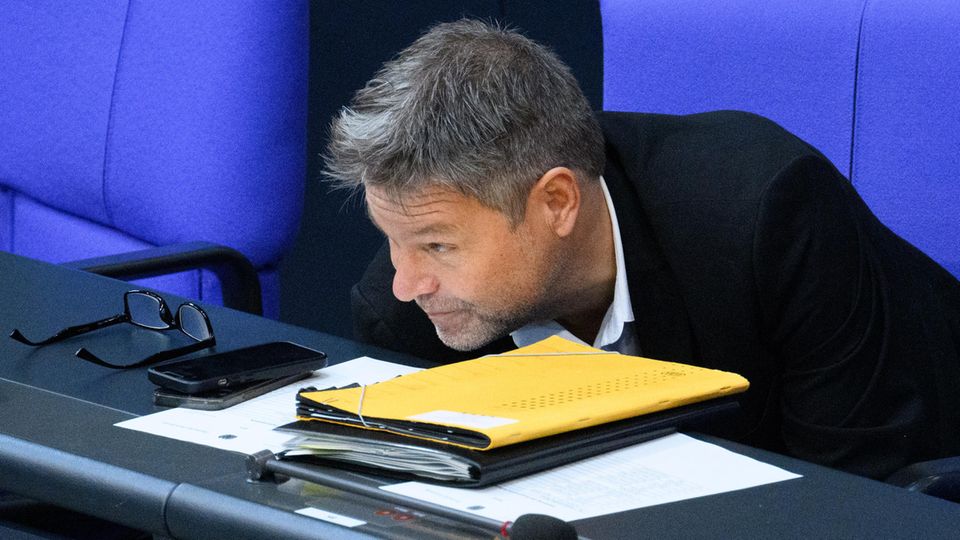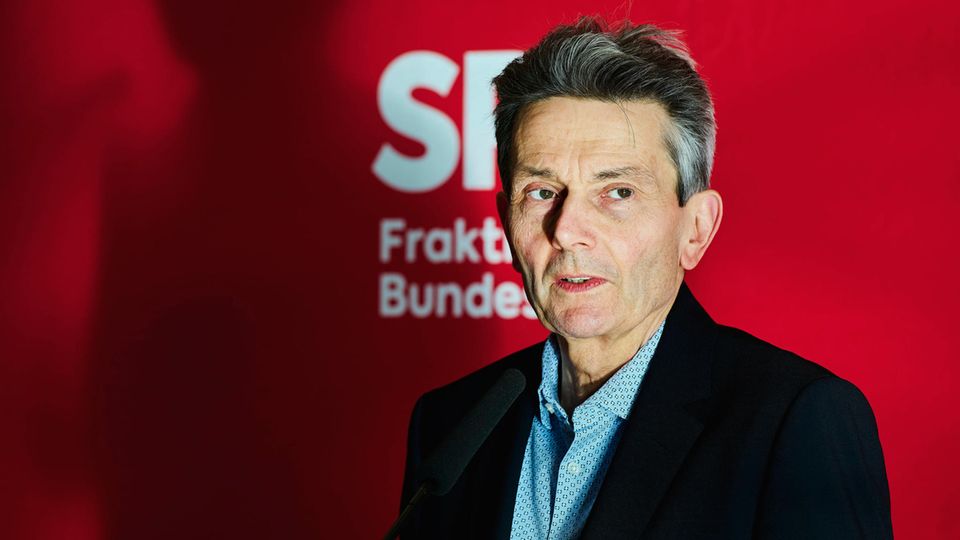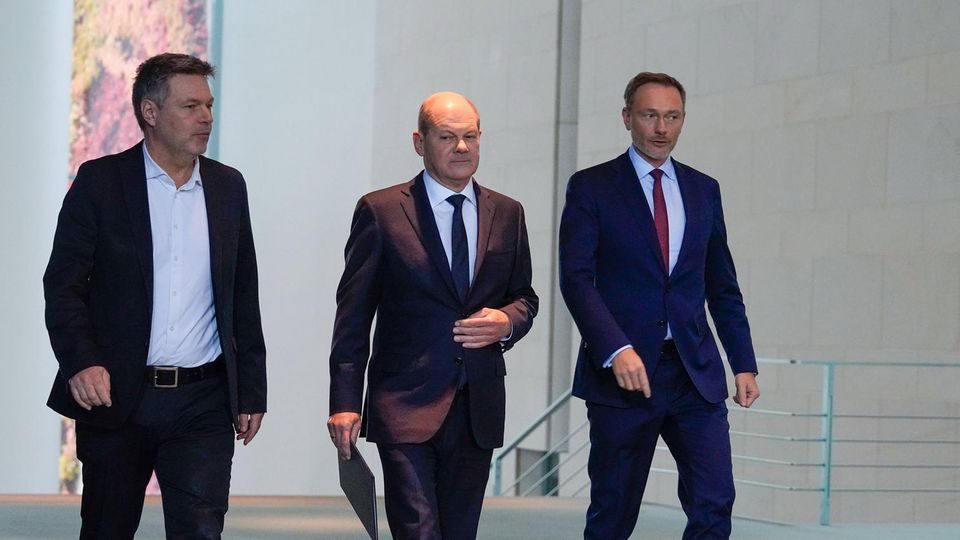Away from subsidy orgies and towards Co2 pricing: Uweschneidewind, head of the Wuppertal Institute for Climate, Environment and Energy for over ten years, calls for a radical new climate policy in an interview after the Karlsruhe ruling.
Mr.schneidewind, do you sometimes sit in your mayor’s office? Wuppertal– Complain and tear your hair out about what your green party friends in Berlin are screwing up?
I have very short hair, which makes it easy (laughs). No, I wouldn’t call it screwing up, but there is simply a very, very unfortunate dynamic in this government coalition.
You are an economist. What was your first thought when you heard the radical ruling of the Federal Constitutional Court last Wednesday, which said: 60 billion euros in Corona aid money that the traffic light government should invest in climate– and transformation funds (KTF) may not be used for the green conversion?
It occurred to me: This is going to be really difficult for the coalition! I am very concerned that the struggle over the consequences of the ruling will come at the expense of clear climate protection signals. That all the security that businesses and private households had gained with the new Building Energy Act is now crumbling again.
That was banned in July Federal Constitutional Court the traffic light to pass the first version of the heating law. Now Karlsruhe has once again rejected a government decision that falls heavily into the Green department. Can’t the Greens actually do business?
What at KTF What happened is not the responsibility of the Greens, but of the former SPD Finance Minister Olaf Scholz and the current Finance Minister Christian Lindner. Their craftsmanship errors were criticized. But we should still ask ourselves: What could an economically sensible climate protection strategy look like? At the moment we’re throwing an incredible amount of subsidy money at everyone. We urgently need to consider whether we can achieve the same control effects at a much lower economic cost.
It was therefore right for the Union to introduce the shadow subsidy budget Federal Government to drag him to the highest court? Or was it just a mean election campaign in times of crisis, as Federal Minister of Economics Robert Habeck sometimes seems to interpret it?
Of course we have to clarify whether we take the debt brake seriously or not. It makes no sense to decide on the instrument of the debt brake with a constitutional majority in the Bundestag and then create a lot of circumstances to circumvent it. Therefore, the opposition cannot be accused of the lawsuit being a tactical maneuver. Now it would be logical to discuss the actual decision again.
Do you mean the sense and nonsense of a debt brake?
We need to have this discussion. We are in a phase of transformation where we have to make huge investments that ultimately pay off for everyone. That would justify suspending the debt brake for a certain period of time. This position is also represented by leading economic institutes.
You were a professor of innovation management and sustainability at the University of Wuppertal. What would you have done differently or better at the KTF if you had been in government responsibility?
It would be very cheap to make suggestions from the sidelines. Decisions like this, i.e. transferring 60 billion euros from Corona aid to the KTF, arise from extremely challenging negotiation and coalition dynamics. It’s a bit difficult for me to say from the outside, from a scientific perspective: she clearly should have done it this way and that way…
… well, you used to advise the federal government as a scientist.
That’s true, but I was closer to the decision-making process. But I think, as I said, the fundamental question when budgets are tight must be: Is the federal government’s current subsidy strategy really appropriate? Does the state still have to pay a bonus of 6,500 euros to people who can spend 40,000 euros on a new car? Similar questions apply when replacing a heating system. These issues must be on the table now.
So Berlin should completely rethink?
Above all, we need to think more courageously. A commitment to climate protection is a collective task where it must be clear that those who can better afford climate protection will not be cushioned in the same way as those for whom it leads to social upheaval.
Wouldn’t it be better in principle if the traffic light government switched its climate policy to the polluter pays principle by consistently passing on C02 costs to consumer prices instead of handing out subsidies with a watering can? Those who do more damage to the climate will be asked to pay more. That sounds fair.
Yes, you are right. Whether this is implemented through CO2 certificates or through even more consistent CO2 prices is a question of the right technology. However, such a solution must not promote social injustice in this country. Those who are particularly wealthy also emit a particularly large amount of CO2. However, energy-driven consumer prices hit the poorer people much harder. We have to take this social component into account. It is therefore essential that climate money flows back to low-income earners to compensate for the higher burdens.
Why absolutely? Don’t low-income earners also put a strain on the environment?
Yes, but if I earn little income and therefore have to live in an inexpensive metropolitan area, I cannot afford an excellently insulated apartment. I may also have to incur commuting costs. In addition, there is a risk of social explosiveness because without climate money, those who receive citizens’ benefit will be better cushioned when it comes to energy costs through housing benefit and heating subsidies than everyone who earns their income every day with hard work.
Five years ago you wrote the book “The Great Transformation” as President of the Wuppertal Institute for Climate, Environment and Energy. You demanded new moral ideals from society: frugality and renunciation. Is this no longer the focus of your climate strategy?
I still see it that way. The question is: What do models of prosperity look like in modern societies that cannot continue to grow at will? Unfortunately, we hardly have any space left for this discussion without it immediately leading to the well-known defensive reflexes and defamation. Anyone who uses the term renunciation is discredited these days. I regret that very much; we were a long way ahead on this point ten years ago.
In 2020, as the new mayor of Wuppertal, you wanted to renovate the venerable mountain town ecologically at a record pace – and were severely thwarted. How disillusioned are you with reality?
What we are now observing in Berlin is something we also feel every day here in Wuppertal. However, I wouldn’t speak of disillusionment. There is certainly disillusionment among many who voted for me and hoped: Now a transformational pope is coming and everything will happen very quickly. Such implementation processes prove to be very difficult. But only through experimentation do we learn what we need to tweak to get more speed. And we are currently experiencing bitter lessons, both at the federal and local levels.
Now the finance minister has also imposed an extensive budget freeze. What consequences can all this have for a city like Wuppertal?
It causes further great uncertainty in all economic and social matters. Developments in municipalities will have the greatest impact on the heating transition. It would be bad if there were no longer any financial incentives at all and the impression would arise that climate protection isn’t that important after all. If the inclination continues to grow, install a new gas heater first and just wait. But it’s not just about the investment decisions of homeowners. Municipalities would now have to upgrade their heating networks and the entire energy infrastructure. That requires billions in investments, and for that they need political security. A lack of it is poisonous for such large investment projects.
Federal Minister of Economics Robert Habeck warns that the verdict poses a massive threat to the green restructuring of the economy. Wuppertal relies heavily on industry. Do you share his analysis?
Yes. In North Rhine-Westphalia we have a very strong energy and CO2-intensive industry with long value chains. The huge issue is: Will these industries manage the transformation into a climate-friendly future? If the process stalls, the large industrial clusters here in the Rhine-Ruhr region are massively threatened, especially since the conversion in the USA and China is being pushed forward with great intensity and state support. So where will investments flow in the future? We need a clear signal that the green transformation will continue, supported by the state, despite this Federal Constitutional Court ruling.
Habeck also says: Electricity and gas could now become drastically more expensive again. What consequences do you fear if that happens?
Wuppertal is traditionally dependent on very energy-intensive industrial production. For them, international competition is becoming ever stronger. We look at this with concern. The question is: How do we survive the transition phase of the energy conversion, because only with renewable energies will energy prices fall again and industries will be competitive. This justifies an electricity price subsidy, as was recently decided politically.
And what does a price increase mean for private households in Wuppertal?
For them it won’t be as bad as it was last winter when we had the Ukraine shock. Higher energy prices also send the right signals, namely that we cannot avoid saving energy. That it is smart to buy a smaller, more fuel-efficient electric car. The bitter news is that in the future such cars will only be found from Chinese suppliers who will offer very good cars for 10,000 to 15,000 euros, while the German automotive industry will not be able to serve this market.
In your 2018 book you called for big, bold leaps in climate protection. Little has happened since then. The climate goals that Germany has set itself can no longer be achieved. Given the tight budget, will we have to make do with small steps in the future?
The challenges have not gone away, and a massive process of change is taking place worldwide. For example in China, the country that is suffering the most from the consequences of climate change. China is expected to reach peak Co2 emissions as early as 2024. The question is: When and how will Germany manage to get back into the dynamic of change? That’s what these days are all about. The fact that we will probably end up breaking the 1.5 degree target is one thing. But every tenth of a degree we avoid mitigates the negative consequences for humanity in the decades and centuries to come. The big question is what role Germany can play in this.




